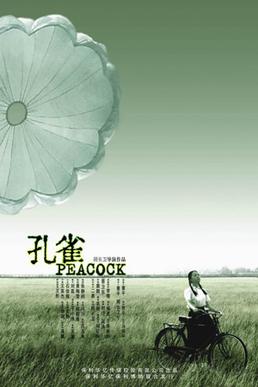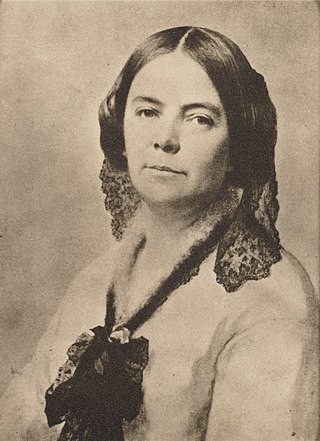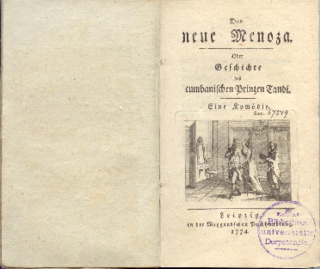
Marie Walewska, Countess Walewska was a Polish noblewoman in the court of Napoleon I who used her influence to sway the emperor towards the creation of an independent Polish state. In her later years she married count Philippe Antoine d'Ornano, an influential Napoleonic officer.
Elizabeth Boleyn, Countess of Wiltshire was an English noblewoman, noted for being the mother of Anne Boleyn and as such the maternal grandmother of Elizabeth I of England. The eldest daughter of Thomas Howard, 2nd Duke of Norfolk and his first wife Elizabeth Tilney, she married Thomas Boleyn sometime in the later 15th century. Elizabeth became Viscountess Rochford in 1525 when her husband was elevated to the peerage, subsequently becoming Countess of Ormond in 1527 and Countess of Wiltshire in 1529.

The Other Boleyn Girl (2001) is a historical novel written by British author Philippa Gregory, loosely based on the life of 16th-century aristocrat Mary Boleyn of whom little is known. Inspired by Mary's life story, Gregory depicts the annulment of one of the most significant royal marriages in English history and conveys the urgency of the need for a male heir to the throne. Much of the history is highly distorted in her account.

What a Girl Wants is a 2003 American teen comedy film directed by Dennie Gordon and written by Jenny Bicks and Elizabeth Chandler. Based on the 1955 play The Reluctant Debutante by William Douglas-Home, it is the second adaptation for the screen of this work and stars Amanda Bynes, Colin Firth, Kelly Preston, Eileen Atkins, Anna Chancellor, and Jonathan Pryce. The film tells the story of a seventeen-year-old girl who goes to England to meet the father she never knew.

The Labours of Hercules is a short story collection written by Agatha Christie and first published in the US by Dodd, Mead and Company in 1947 and in the UK by Collins Crime Club in September of the same year. The US edition retailed at $2.50 and the UK edition at eight shillings and sixpence.

Peacock is a 2005 film directed by Gu Changwei, written by Li Qiang. This is Gu's first film as director after a lengthy career as a cinematographer for some of China's top directors. The film premiered simultaneously in both China and in competition at the 2005 Berlin International Film Festival, going on to receive Berlin's Jury Grand Prix Silver Bear.

The Roaring Girl is a Jacobean stage play, a comedy written by Thomas Middleton and Thomas Dekker c. 1607–1610.

Die Soldaten is a four-act opera in German by Bernd Alois Zimmermann, based on the 1776 play by Jakob Michael Reinhold Lenz. In a letter accompanying his newly printed play that he sent to his best friend, the German philosopher Johann Gottfried von Herder, Lenz described himself as "an enigma to even his most precious friends", while saying of the play, "Here, into your holy hands, the piece which carries half of my existence. [The ideas it contains are] true and will remain so, even if centuries may walk contemptuously across my skull".

La Mary is a 1974 Argentine romantic-drama film directed by Daniel Tinayre starring Susana Giménez and Carlos Monzón. The screenplay is by José A. Martínez Suárez and Augusto R. Giustozzi, based on the 1965 short story of the same name by Emilio Perina, included in Historias apasionadas: La Mary y El Fiscal and later released as a novel with the release of the film.
Mademoiselle Marie is the name of two fictional characters appearing in comic books published by DC Comics. She first appeared in Star Spangled War Stories #84, and was created by Robert Kanigher and Jerry Grandenetti. She was based in part on several actual members of the French resistance, most notably Simone Segouin.

A Gesture Life is a 1999 novel written by Chang-Rae Lee which takes the form of a narrative of an elderly medical-supply salesman named Doc Hata, who deals with everyday life in a small town in the United States called Bedley Run, and who remembers treating Korean comfort women for the Japanese Imperial Army during World War II. He once owned a medical and surgical supply store and he has an adopted daughter named Sunny. All the problems which Doc Hata has to deal with stem from his experiences serving the Japanese Imperial Army in the World War II.
Epidicus is an ancient Roman comedy written by T. Maccius Plautus. It is said to have been one of Plautus's favorite works. Epidicus is the name of the main character, who is a slave. The plot takes many turns as Epidicus tries to please his master's son, Stratippocles.

Bethany Joy Lenz is an American actress and singer-songwriter. She is known for her portrayal of Haley James Scott on The WB / The CW television drama One Tree Hill (2003–2012). She also starred as Michelle Bauer Santos on the CBS Daytime soap opera Guiding Light (1998–2000), and is recognized for her music as a solo artist and as a member of the band Everly. Since 2021, Lenz has been a co-host on the Drama Queens podcast along with her former One Tree Hill co-stars, Sophia Bush and Hilarie Burton Morgan.
Elisa di Rivombrosa is an Italian television series about a love story in 18th century Italy between Fabrizio Ristori, a young Italian Count, and his mother's maid, Elisa. It was broadcast on Mediaset for two seasons from 2003 to 2005.

Caste is a comedy drama by T. W. Robertson, first seen in 1867. The play was the third of several successes by Robertson produced in London's West End by Squire Bancroft and his wife Marie Wilton. As its name suggests, Caste concerns distinctions of class and rank. The son of a French nobleman marries a ballet dancer and then goes to war. When word arrives that he has been killed in action, his mother tries to wrest the child from his penniless widow.

Henriette Deluzy-Desportes (1813–1875) was a French governess who was the subject of a scandal with Charles Laure Hugues Théobald, duc de Choiseul-Praslin. The scandal played a role in bringing down the King of France. The story of her life in Paris was the basis for a book written by her great niece and made into the movie All This, and Heaven Too starring Bette Davis in 1940.

The New Menoza or a History of the Cumban Prinz Tandi is a 1773 comedy by Jakob Michael Reinhold Lenz, first published in Leipzig in 1774. Johann Wolfgang von Goethe arranged for the play's publishing.

Madeleine Swann is a character in the James Bond films Spectre (2015) and No Time to Die (2021), played by actress Léa Seydoux. She is one of only two Bond girls to appear in two films and first in the film series to have a child with Bond.














